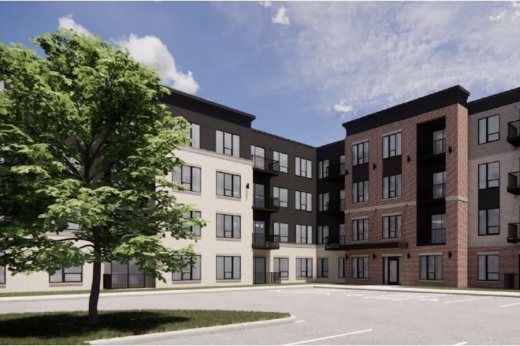Coppell City Council unanimously denied two requests for the project—a rezoning request to add a planned development overlay and a land use amendment—during their April 9 meeting. The property for the project is a nearly 10-acre site west of North Coppell Drive and west of Canyon Drive.
The overview
Minnesota-based real estate investment firm Roers Companies proposed a 217-unit apartment complex within a four-story building on the property. Rents would have been adjusted by the Department of Housing and Urban Development annually, and the community would require an individual 55 years old or older to sign the lease, developer Logan Schmidt said.
According to city documents, amenities for the proposed complex included:
- A theater
- A fitness center
- A community room
- A business center
- An activity room
- A multifunction amenity center
- An outdoor dog park
- A pool with grilling area
- A putting green
Diving in deeper
Residents who would have been living near the proposed complex cited numerous concerns including increased traffic, the property tax exemptions that could have been granted and more noise pollution.
The planning and zoning commission failed to reach a majority to recommend approval of the project during its March 21 meeting, which meant at least six council members would have needed to vote for approval.
“The fact that we’re having to try to shoehorn it into urban residential neighborhood classification shows that this wasn’t something contemplated as an appropriate land use for this community,” council member Jim Walker said. “Absent some amendment to [the comprehensive plan], I don’t think this is an appropriate use in this particular location, in this particular community and next to this particular neighborhood.”





